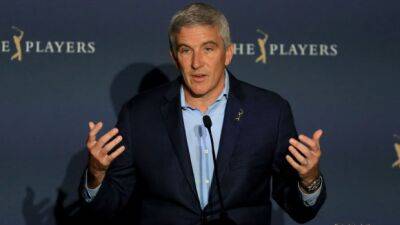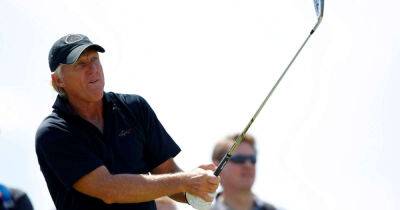Greg Norman ESPN documentary Shark shines light on his infamous collapses, and offers insight into his current controversies
For Australians, the story of Greg Norman's capitulation at the 1996 Masters is not one that needs retelling.
It's a sporting event that is generationally recounted, passed down from parent to child almost as myth. It's both an endearing reflection of the overall successes of one of our greatest athletes, and a cautionary tale of the inevitability of failure.
And yet now, at a time when the wider context of Norman's life and career has never been more relevant, ESPN's esteemed 30 for 30 documentary series has exhumed that one Sunday in April at Augusta National for an international audience.
Simply titled Shark, the documentary starts at the beginning of Norman's golf career and ends with his failure to win the 1996 Masters, despite starting the final round with a six-stroke lead.
It's an enlightening look back at Norman's on-course career, delving into the personality traits that made him a somewhat resented breakout success among fellow pros — and eventually held him back from scaling the game's summit.
But as we all know, the Norman story didn't end in 1996. What is presented as a tragic summation is really only part of the wider tapestry, another piece to a fascinating puzzle that might help explain the motivations of modern golf's disrupter-in-chief.
Norman is the head of LIV Golf, an organisation attempting to change the face of the professional game by hosting lucrative events in direct opposition to the PGA Tour schedule.
LIV Golf is backed by the Saudi Public Investment Fund (PIF), which professes to be independent of the government despite being chaired by Crown Prince Mohammad bin Salman, who has been accused ofgreen-lighting the murder of journalist Jamal Khashoggi by Saudi agents in Istanbul.
LIV's affiliation with








